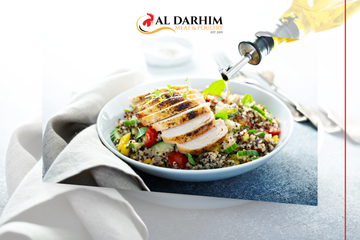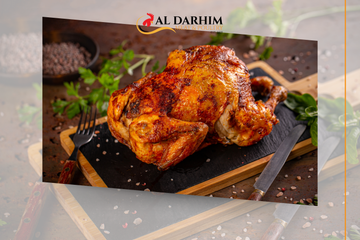Consuming protein every day during Ramadan is essential for several reasons. First and foremost, protein is an essential macronutrient that is crucial for building and repairing tissues in the body. During the month of Ramadan, when Muslims fast from sunrise to sunset, the body may break down protein for energy if it is not consumed in adequate amounts through food. This can lead to a loss of muscle mass and a slower metabolism over time.
Protein also helps to regulate hunger and satiety, which is important during Ramadan as the body can easily become dehydrated and fatigued without proper nourishment. Consuming protein-rich foods can help to keep you feeling full for longer periods, reduce cravings for high-sugar or high-fat foods, and maintain energy levels throughout the day.
Furthermore, consuming protein during Ramadan can help to stabilize blood sugar levels and prevent spikes and crashes, which can be especially beneficial for individuals with diabetes or other metabolic conditions.
It is important to note that protein should be consumed as part of a balanced diet, along with complex carbohydrates, healthy fats, and a variety of fruits and vegetables. Our chicken at Al Darhim is one of the best sources of protein in Dubai, our chicken is hormone-free, free from steroids, chemical preservatives, and antibiotics.
We have introduced one the best subscription boxes to make sure you get complete protein intake this Ramadan. Order now!
What happens if you consume less protein in Ramadan?
If you consume less protein during Ramadan, it can lead to a variety of negative health outcomes. As protein is essential for building and repairing tissues in the body, a lack of protein can lead to a loss of muscle mass and a slower metabolism over time. This can result in fatigue, weakness, and a decreased ability to perform physical activities.
Additionally, a lack of protein can cause blood sugar imbalances, leading to feelings of lethargy and low energy. Without sufficient protein, the body may also break down muscle tissue for energy, leading to further muscle loss.
Furthermore, consuming inadequate amounts of protein can lead to increased cravings for high-sugar or high-fat foods, as well as increased hunger and reduced feelings of satiety. This can make it more challenging to maintain a healthy and balanced diet during Ramadan.
It's important to note that while fasting during Ramadan can be a spiritual and cultural practice, it's essential to prioritize your health and consume adequate amounts of protein and other nutrients to support your body's needs.




